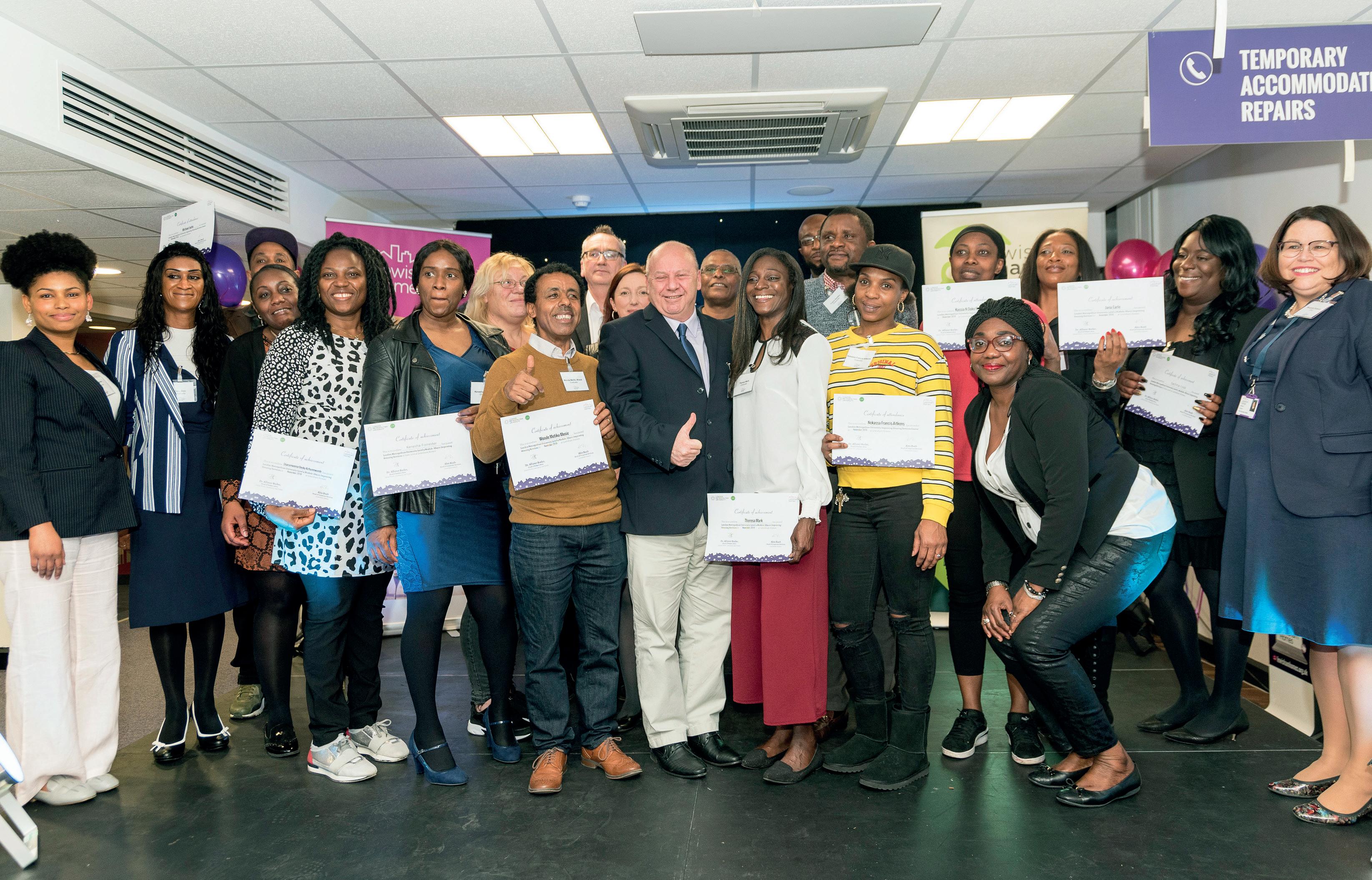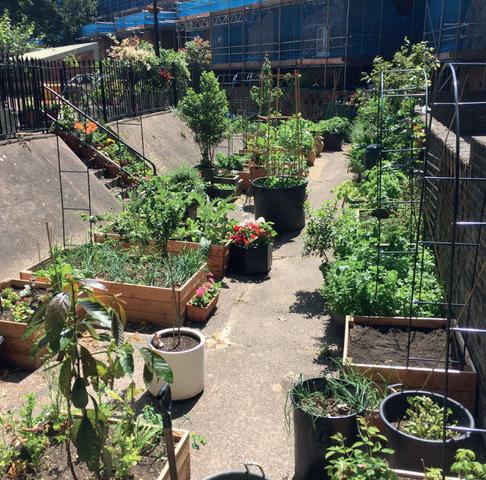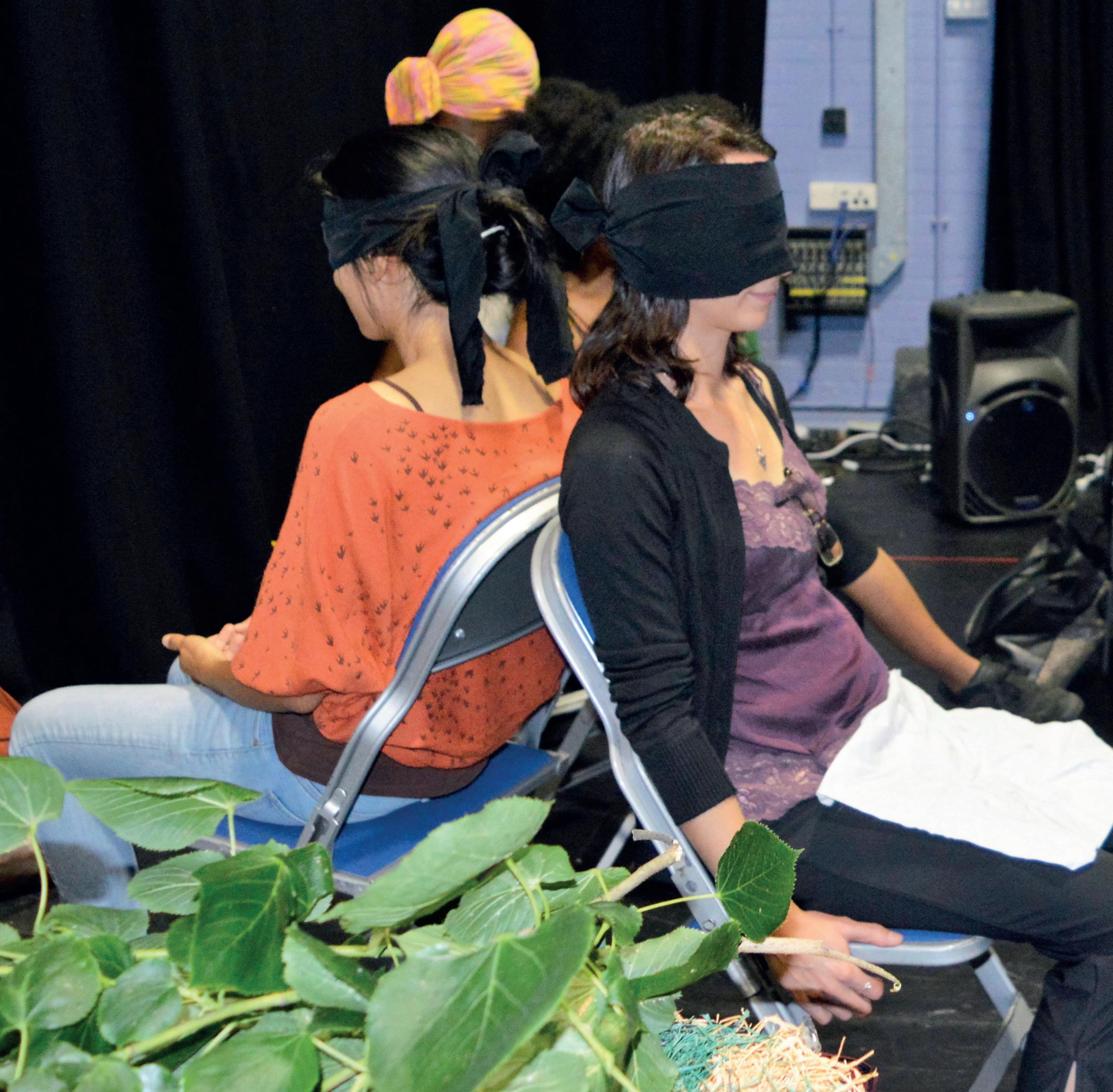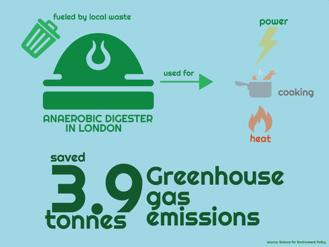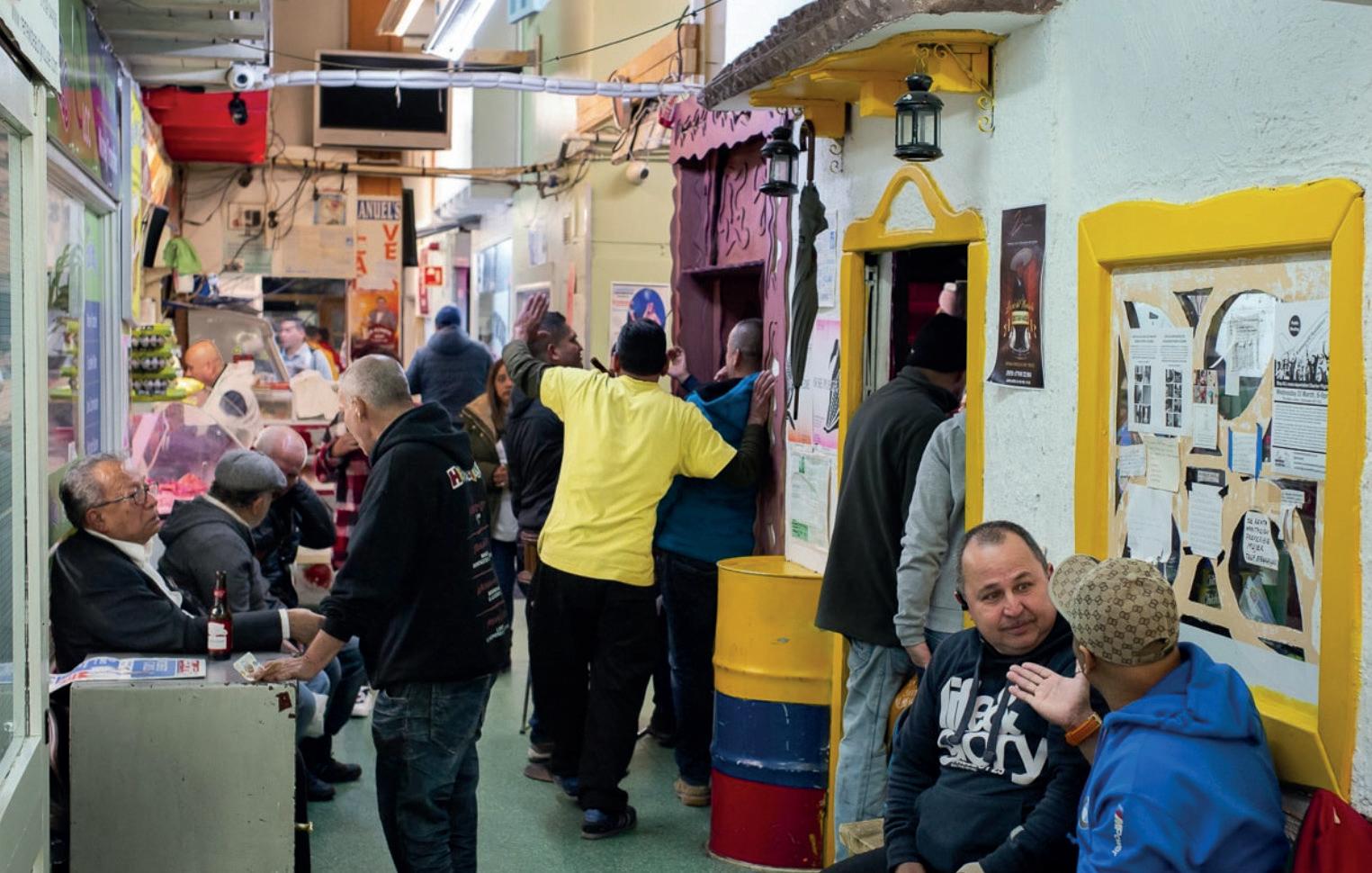
7 minute read
Workshop Programme
from W12P188
by PDF Uploads
Workshop programme 23 October 2019
Why did we choose these workshop topics?
• Workshop 1: What does decolonisation and decoloniality in learning spaces actually mean: An Community and
Universities exploration
• Workshop 2: The battle for community spaces
• Workshop 3: A fresh look at community economic and industrial strategies
• Workshop 4: A transformative strategy for collaboration - community groups and universities
We are at a key juncture for society itself. Times have changed for both Universities and Community Groups in a climate of:
• Greater austerity arising out of public sector cuts
• A climate of fear and aloneness in what we are dealing with on lots of levels including xenophobia, racism, poverty, loss of status, loss of jobs in the face of automation, downward wage pressure, shortage of social housing, poor health and increased loneliness
• More redevelopment with London
Universities themselves having significant development interests
• Loss of staff and social infrastructure, and an increased focus on volunteering to deliver public services - particularly the case for community groups and Universities are ready to supply both staff and volunteers
• Growth in institutional recognition of the value of community engagement – with public and community engagement embedded in institutional structures
• Community groups recognising the value of health, economic, environmental and social impact assessments – to help assess progress down certain conventional routes which might work for larger scaled organisations but remains challenging for smaller grassroots groups often doing things that funders do not often value nor fund
• Awareness of the potential gains, shared risk and benefits arising from partnering up
We wanted to choose topics for 3 main reasons:
• Engaging, meaningful and required solutions that related to real issues that were affecting us in our roles
• Opportunity to learn something new, share knowledge and find new perspectives on it – that takes advantage of the collaborative space we created
• Link the topics to our strategy so that we could not only
grapple with the complexity of the present and what they might the issue, but explore how to develop into for more just future/s. tackle issues and if relevant, incorporate it for further Workshop 2: The Battle for consideration and action. Community Spaces What does ‘winning’ community Workshop 1: What does space mean for us? Ownership, Decolonising in Learning rights to develop, access or free Spaces mean: A Community space? How realistic is it and why and University exploration is that your ask? Decolonisation/Colonisation. Decoloniality/Coloniality. • Ownership or a Space to Be? Decolonialism/Colonialism. • Nothing going on but the Rent! In order to create a strong strategy for the collaboration between communities and universities, we • Can Universities be Ethical Landlords? need to know - or at least try to Everything we do is rooted in our know - how both these bodies relate members and their communities. to learning and to the production of Interestingly space is being knowledge. How do these ways increasingly linked to mental and differ and how are they the same? physical well-being and skills. What relationships exist between them and how have these relations The Reclaim our Spaces come about? We need to know Campaign what the cultural and institutional An event was held in June 2016 at realities are which help us to respond Conway Hall, organised by Yvonne to these important questions! Field and its report was authored by Santa Pendone. Relationships between these institutions have been forged over It picked up on a wide range of time and in different places. As a issues affecting the pressure that result, the processes known as London’s community spaces face colonisation/colonialism and when under threat. The event was coloniality have both shaped co-ordinated in partnership with: relationships and attitudes to learning as well as the production Community Food Growers of knowledge/s. To really Network, Conway Hall, Latin understand what these processes Elephant, London Gypsy and and outcomes are, we need to Traveller Unit, Long Live Southbank, understand what they mean to Mela, Migrants Rights Network, each of these bodies and how they Take Back The City, Three Acres have unfolded over time up until and a Cow, UpRise. Collaborate: a community led initiative 11
The pressure on Community Spaces generations is part of a is a national issues, as echoed by continuing legacy. Locality and The Co-op in “Endangered Spaces” (June 2019): 03 Value and resource Locality identified in ‘The Great community-centred knowledge British Sell Off ’ shows the UK is and creativity for the losing over 4,000 publicly owned contribution this can make to buildings and spaces every year. It policy discussions and a whole is estimated 16,000 public and system approach to community spaces will be under community engagement threat by 2023, including parks and across the GLA. green spaces, libraries, leisure centres, swimming pools and youth clubs. 04 Community spaces are essential to the achievement of lifetime Definition of a Community neighbourhoods in which Space housing, health and education By community spaces, we include facilities, shops and other local community centres, music venues, amenities are affordable and libraries, pubs, open spaces and accessible to everyone, now public spaces, youth centres, land and for future generations, and for community food growing and there is support for community street markets. Many community networks based on social spaces across London have been co-operation and mutual lost in recent years and others are support. under threat of closure through a combination of austerity, privatisation and development pressure. 05 Community spaces are not just physical buildings, but social spaces where cultural Reclaim Our Spaces Manifesto expression takes place. These 01 Shift thinking so access to and social spaces provide the value of community spaces movement and interaction is not based on business plans between different cultures and and income generation but on it is important they are social value of the community integrated as well as truly space and its contribution to accessible to all. health and wellbeing, inclusion, integration, empowerment and poverty reduction. 06 Housing estates provide a wide range of community spaces – community halls, open 02 Recognise the irreplaceability spaces, playgrounds and other and uniqueness of many facilities – which must be community spaces and look protected and their use after them for future encouraged. 12 Collaborate: a community led initiative Locality identified in ‘The Great British Sell Off ’ shows the UK is losing over 4,000 publicly owned buildings and spaces every year.
It is estimated 16,000 public and community spaces will be under threat by 2023, including parks and green spaces, libraries, leisure centres, swimming pools and youth clubs.
Key Statistics:
• 56% of respondents feel more needs is to be done to protect community spaces.
• 58% rely on community spaces for socialising and making friends
• 73% of 25-34-year olds made friends at a community space.
• 50% of those under 55s rely on a community space to exercise and keep fit rising to 60% for
Over 55s
• 48% community spaces provide a safe area
• Having a hub where people from all ages and backgrounds can spend time in without feeling intimidated.
Most valued community spaces in the UK:
01 Parks (66%) 02 Playgrounds (59%) 03 Libraries (57%) 04 Leisure centres (53%) 05 Youth centres (52%) 06 Community centres (49%) 07 Grass pitches (48%)
• What can we each do to protect our community?
• What tactics are being used to kill off community spaces and what legitimate challenges can we make to protect them?
• Let’s talk about sharing spaces.
What examples do we have where this has been done well?
• How can we activate University estate to be useful for community spaces?
• Are there any case studies we can draw on to show how it has worked?
• What challenges and what opportunities does it bring?
• What are the implications for the strategy?
Workshop 3: A fresh look at community economic and industrial strategies
London’s extreme wealth is matched by London’s extreme housing crisis.
• As an example, are co-ops a good way forward to redistribute wealth?
• Will sustainability reach the social economy, when it is so grant dependent to start up? • What fresh ground can we break to promote higher wages in a high cost economy?
• Bearing in mind an ageing society, the future of mobility, clean growth and the AI and
Data Economy, can we predict what work and jobs of the future are going to look like?
• What are the implications for the strategy of how Universities and community groups can collaborate?
Workshop 4: A transformative strategy for collaboration - community groups and universities
• The Civic University is a popular concept yet how can universities make it real on this project?
• What is the direction of travel of civic-minded Universities with regards to opening doors for the small community group working at grassroots level?
• What can we say about the use of estates in relation to groups needing decent community facilities?
• What are the forthcoming plans for 2020 and beyond that that we can engage with?
• What will success look like in 5 years?

